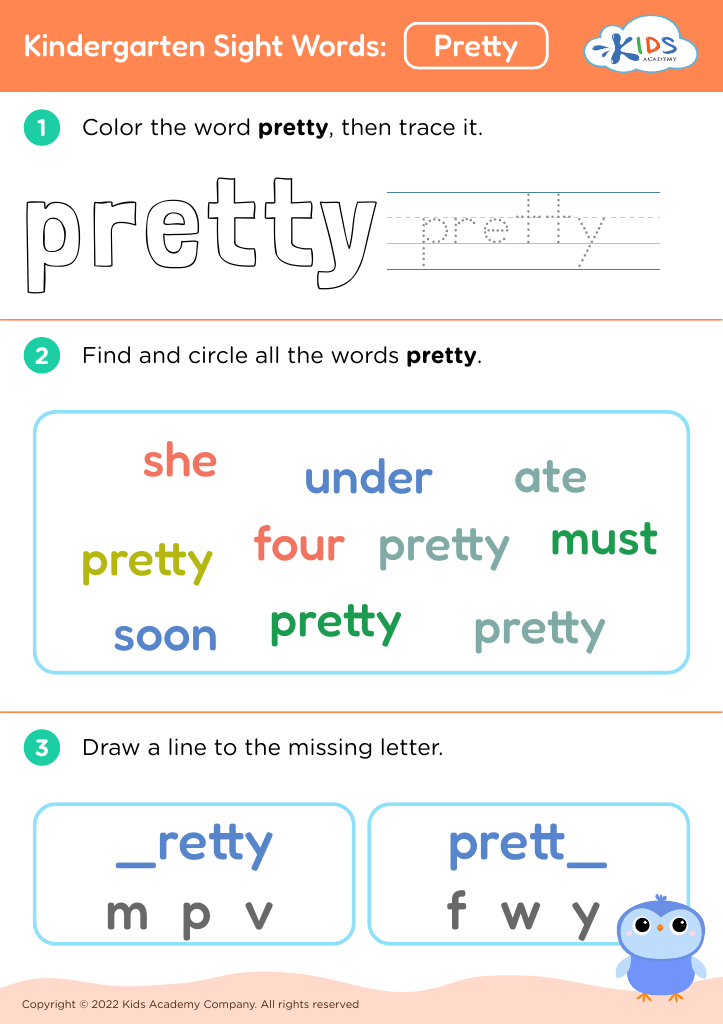Develop problem-solving abilities Worksheets for Ages 4-8
6 filtered results
-
From - To
At Kids Academy, our "Develop Problem-Solving Abilities Worksheets for Ages 4-8" are meticulously designed to make learning fun and effective. Tailored to young minds, these engaging worksheets build critical thinking and problem-solving skills through age-appropriate challenges. Fostering curiosity and independent thinking, our printable resources help children navigate puzzles, develop logical reasoning, and enhance cognitive abilities. Perfect for kids at the formative stages of learning, these worksheets support foundational skills essential for academic growth. Equip your child for success with our specially-crafted problem-solving activities that inspire, educate, and entertain!
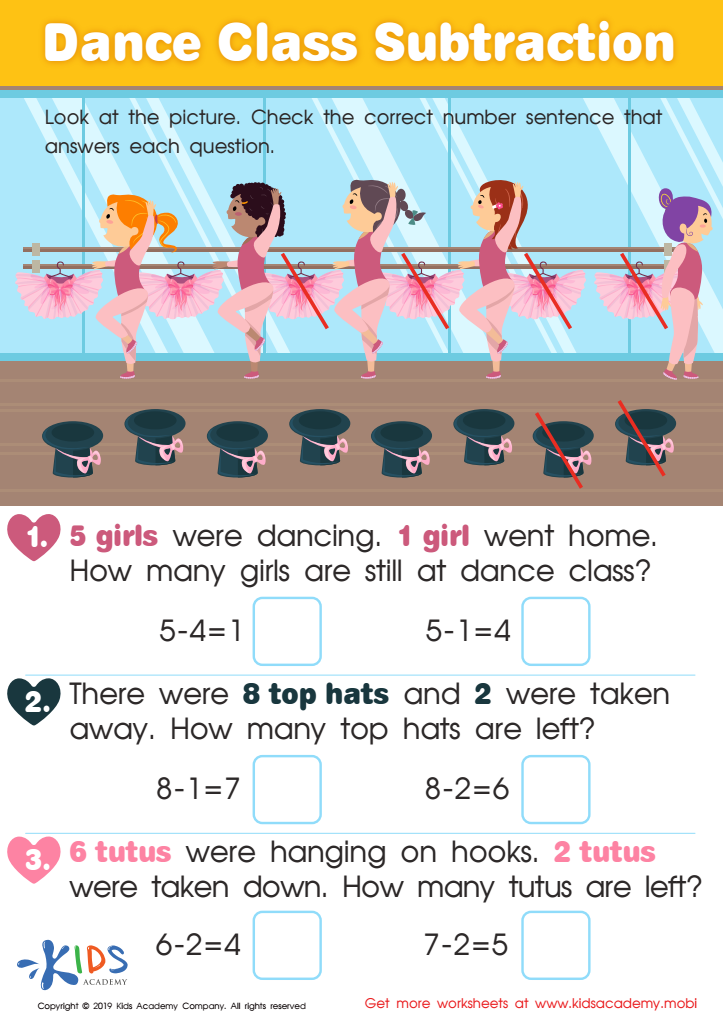

Dance Class Subtraction Worksheet
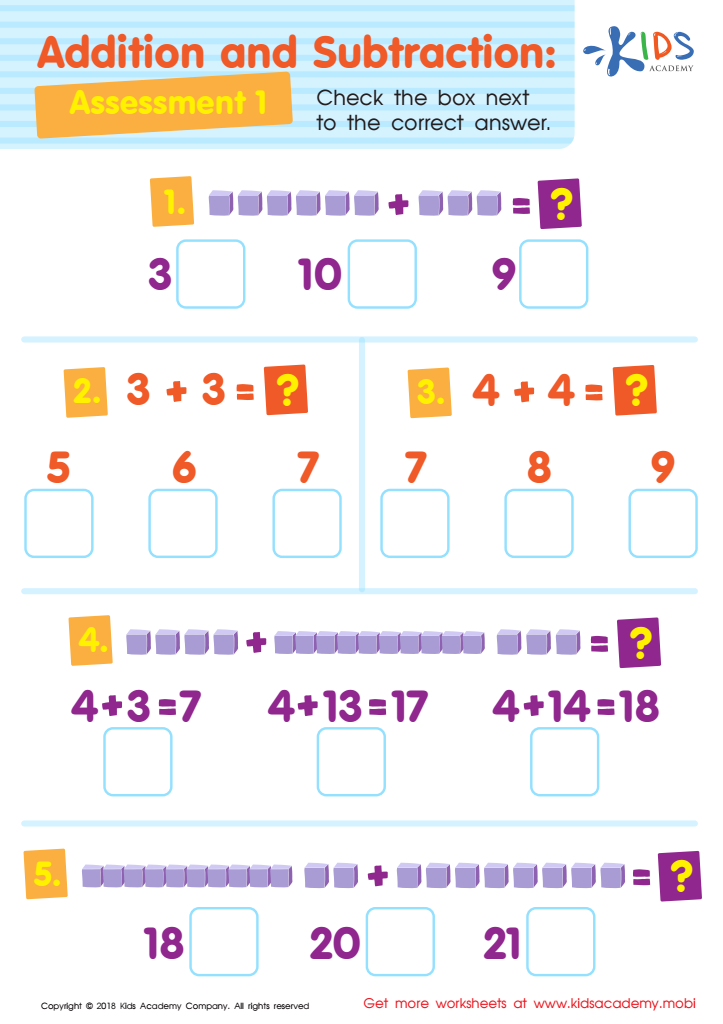

Addition and Subtraction Assessment 1 Worksheet
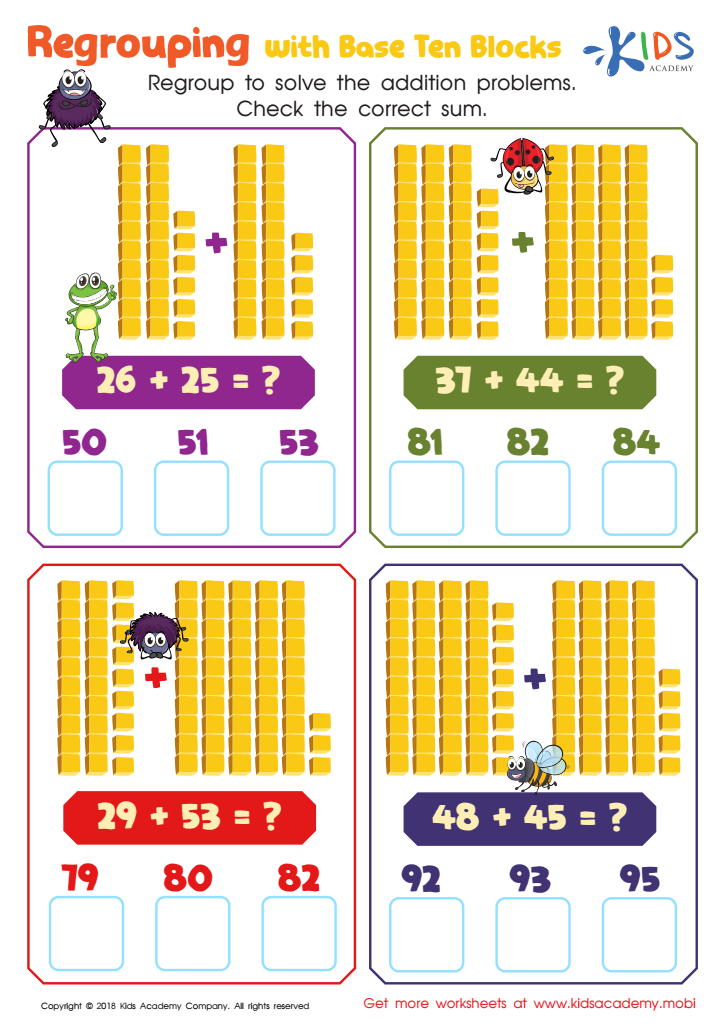

Regrouping With Base Ten Blocks Worksheet
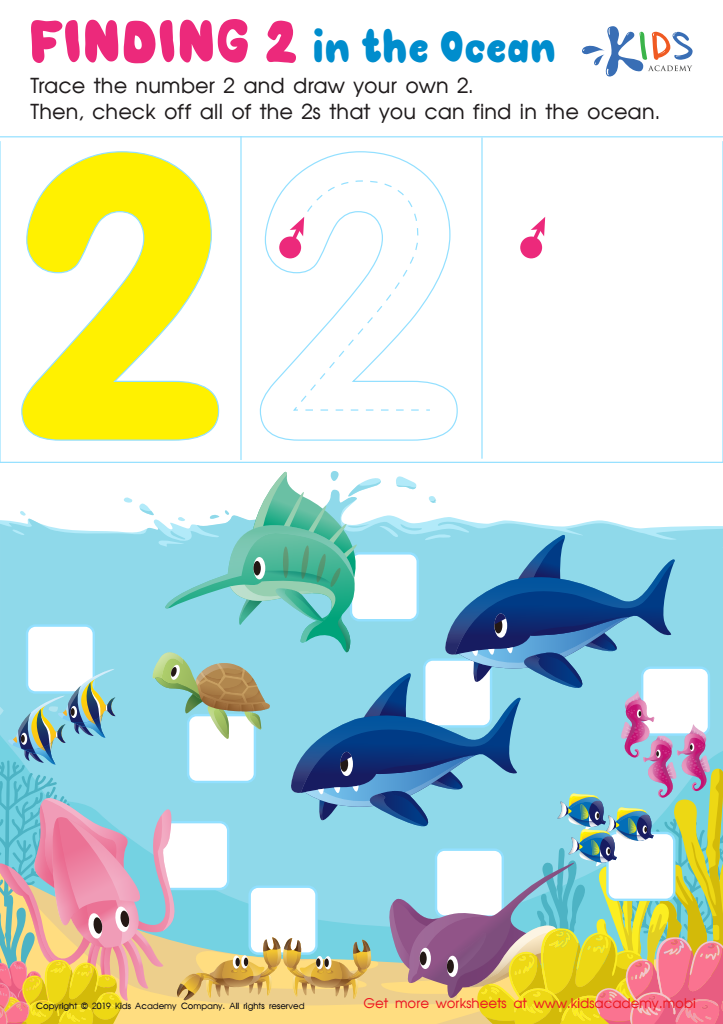

Finding 2: In the Ocean Worksheet
Developing problem-solving abilities in children aged 4-8 is crucial for their overall development and sets the foundation for future success. At this formative stage, young minds are highly adaptable and more receptive to learning. Cultivating problem-solving skills helps foster critical thinking, resilience, and creativity. These qualities are essential for academic success, as they enable children to approach new concepts and challenges with confidence and curiosity.
Parents and teachers play a pivotal role in nurturing these skills. When children are encouraged to solve problems, they learn to analyze situations, make decisions, and understand the consequences of their actions. This process enhances their cognitive abilities and boosts self-esteem, as personal achievements become motivating factors. Practical problem-solving also improves social skills; children learn to cooperate, communicate, and empathize with others while working collaboratively on tasks.
These problem-solving abilities carry over into real-world scenarios, helping children navigate daily challenges effectively. By fostering an environment that values critical thinking and creativity, parents and teachers equip children with tools indispensable for lifelong learning and personal growth. Moreover, children who are adept at problem-solving are often more adaptable and better prepared for the array of academic and social hurdles that lie ahead. Therefore, investing attention in developing these skills early on is invaluable.
 Assign to My Students
Assign to My Students


